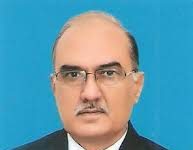By Long Xingchun
Former Indian diplomat K. C. Singh published an article on Monday entitled, “To fulfill Quad promise, will India ‘self-correct’?” The author said that “soft power is at the root” of the Quadrilateral Security Dialogue, also known as Quad comprising the US, Japan, India and Australia, and the Quad members were “united by democratic values.” He suggested that when other countries debate whether democracy is degrading in India, “denial and anger is not the answer… self-correction is the answer.”
First, it is necessary to point out that the Quad is definitely not “united by democratic values.” If this is the case, then why have other democratic countries, such as the Philippines, not participated? The fundamental reason for these four countries to “unite” is not because of their so-called democratic values, but geopolitics. They are unwilling to see China’s rise and are afraid of China’s strength.
Indeed, India’s democracy has been touted by many Western countries, especially the US. But they have their selfish purposes. They want to use India’s democracy as a pretext to reflect the so-called China’s undemocratic condition, and to prove that India’s democracy benefits development. But ironically, India’s development is worse than China’s in almost all aspects. Nor has India’s democracy really contributed to the improvement of its social welfare and human rights.
The most fundamental problem with India’s democracy is that many of the country’s policies and laws cannot truly serve the interests of the people at the bottom of society. Another problem is that many Indian politicians do not have much practical experience in national governance. They mainly focus on political commitments to win votes, but they lack long-term development plans. This also explains the inefficiency of the entire country.
Within the different classes of Hinduism, the rights of the lower castes have long been severely harmed. Farmers committing suicide due to poverty and the vast discrimination against women are vivid examples that democracy and human rights have by no means been guaranteed in India.
A report by the US-based NGO Freedom House on March 3, entitled “Freedom in the World 2021,” has downgraded India from a “free” country to a “partly free” country, after judging India on various political rights and civil liberties. And according to Sweden-based Varieties of Democracy (V-Dem) Institute, India has turned from being the world’s largest democracy into an “electoral autocracy.”
Indian Foreign Minister Subrahmanyam Jaishankar responded sharply to these rhetoric: “Because you have a set of self-appointed custodians of the world, who find it very difficult to stomach that somebody in India is not looking for their approval, is not willing to play the game they want it to be played.”
Here, India’s retort is justified. It is wrong for the US and some Western countries to ask other countries to promote Western democracy according to the standards the West has set. The development of a country’s political system has to be adapted to its national conditions, as well as its historical and cultural traditions.
The West has long regarded India as the “largest democracy.” However, it has a selfish intention for doing so. The claim of India’s democratic status is mainly aimed at China, with the ultimate purpose of trying to prove that China is not a democracy. Now the West sees that the so-called largest democracy also has many problems. In fact, Western countries may have known this long before. They just chose to ignore it. When it comes to issues over China, Western countries may still butter up the specialty of democracy of India. But when they talk about India alone, they will mercilessly point out these problems.
–The Daily Mail-Global Times News Exchange Item




